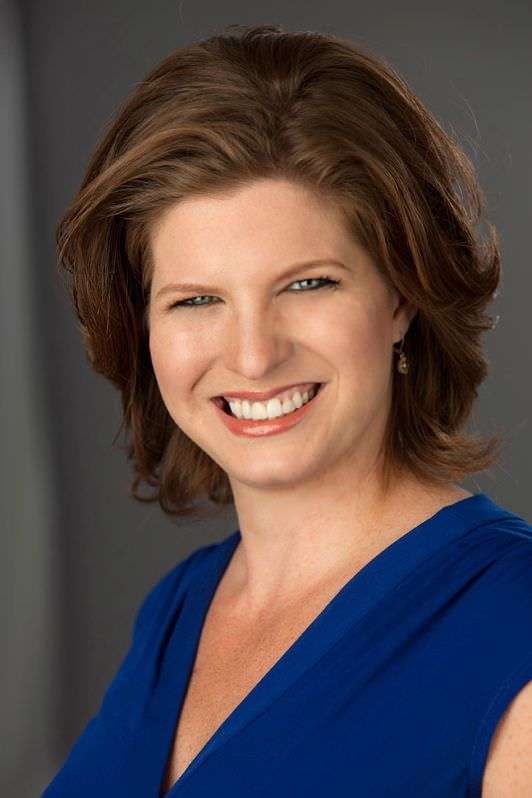Former Wyden Staffer Says Obama Smothered Congressional Debate Over NSA Surveillance

Last week, President Obama defended the federal government's far-reaching surveillance of electronic communications even as he promised some tweaks and fixes to the system to make it a tad more palatable to the outraged world at large. In part, his defense included the claim, "what makes us different from other countries is not simply our ability to secure our nation, it's the way we do it -- with open debate and democratic process." Our legislative representatives discuss and debate these surveillance polices, don't you know, so that makes it all right. But, as Jennifer Hoelzer (pictured at right), former communications director to Sen. Ron Wyden (D-Oregon), points out, that's a load of crap.
Writing for TechDirt, Hoelzer remarks:
To understand why I find this remark so offensive, I should probably tell you a little about myself. While the most identifying aspect of my resume is probably the six years I spent as U.S. Senator Ron Wyden's communications director and later deputy chief of staff, I started college at the U.S. Naval Academy and spent two years interning for the National Security Council. I had a Top Secret SCI clearance when I was 21 years old and had it not been for an unusual confluence of events nearly 15 years ago -- including a chance conversation with a patron of the bar I tended in college -- I might be working for the NSA today. I care very deeply about national security. Moreover -- and this is what the Obama Administration and other proponents of these programs fail to understand -- I was angry at the Administration for its handling of these programs long before I knew what the NSA was doing. That had a lot to do with the other thing you should probably know about me: during my tenure in Wyden's office, I probably spent in upwards of 1,000 hours trying to help my boss raise concerns about programs that he couldn't even tell me about.
With regard to the bit of presidential patriotic smoke-blowing quoted above, Hoelzer comments:
Really, Mr. President? Do you really expect me to believe that you give a damn about open debate and the democratic process? Because it seems to me if your Administration was really committed those things, your Administration wouldn't have blocked every effort to have an open debate on these issues each time the laws that your Administration claims authorizes these programs came up for reauthorization, which -- correct me if I am wrong -- is when the democratic process recommends as the ideal time for these debates.
For example, in June 2009, six months before Congress would have to vote to reauthorize Section 215 of the Patriot Act, which the Obama Administration claims gives the NSA the authority to collect records on basically every American citizen -- whether they have ever or will ever come in contact with a terrorist -- Senators Wyden, Feingold and Durbin sent Attorney General Eric Holder a classified letter "requesting the declassification of information which [they] argued was critical for a productive debate on reauthorization of the USA PATRIOT Act."
In November 2009, they sent an unclassified letter reiterating the request, stating:
"The PATRIOT Act was passed in a rush after the terrorist attacks of September 11, 2001. Sunsets were attached to the Act's most controversial provisions, to permit better-informed, more deliberative consideration of them at a later time. Now is the time for that deliberative consideration, but informed discussion is not possible when most members of Congress - and nearly all of the American public - lack important information about the issue."
Did President Obama jump at the opportunity to embrace the democratic process and have an open debate then? No. Congress voted the following month to reauthorize the Patriot Act without debate.
Hoelzer's point doesn't free Congress of its responsibility in voting for legislation that was buried in secrecy and pushed through without open discussions of its pros and cons (lots and lots of cons, if you care about a free and open society). But it puts the lie to the assertion that the surveillance programs now receiving an open airing and ever-greater revelations, courtesy of Edward Snowden's whistle-blowing, were subject to deliberation and debate before passage.
Hoelzer details other efforts by her old boss and other members of Congress to receive permission to release the administration's legal rationales for conducting surveillance, seemingly in violation of the Fourth Amendment, and to get access to a "ballpark figure" of the number of Americans spied upon. These also were denied. That lawmakers require presidential approval to do their jobs is shocking in itself, in addition to the obvious falsity of claims that "what makes us different from other countries is not simply our ability to secure our nation, it's the way we do it -- with open debate and democratic process."
Hoelzer goes on to point out that not just the administration, but many of its supporters on the surveillance issue, happily bash advocates of privacy and transparency, even as debate is suppressed and those who would release information face prosecution.
Even if the Obama administration doesn't give a damn about transparency, civil liberties and truthfulness in and of themselves, the president's recently plummeting approval ratings may be worthy of official attention.


Show Comments (132)